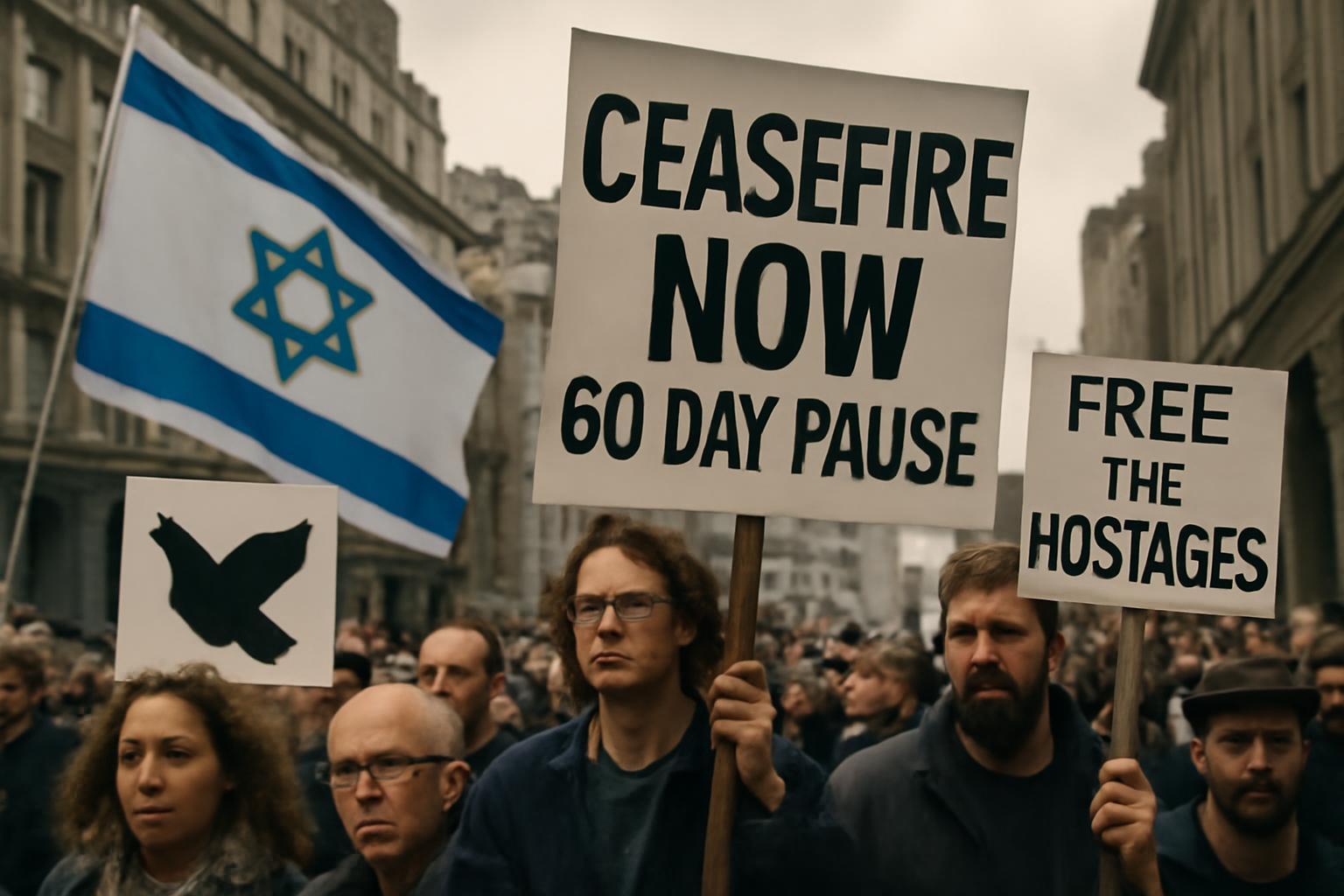Today, the country awoke to a day of protests organized by the Forum of Hostage Families, who claim Prime Minister Netanyahu is prolonging the Gaza war for political ends and thus stalling the release of hostages. Across Israel, demonstrations and road blockades burst into view—especially a major highway near Tel Aviv, with tires burned north of the city—while the group’s motto “Israel stands together” fluttered over a chorus of demands: immediate hostage releases and an end to the war. The prime minister’s right‑wing coalition partners, indispensable to his political survival, oppose any ceasefire. An evening rally was slated for Platz der Geiseln in central Tel Aviv. A week earlier, hundreds of thousands had gathered in solidarity with the hostages. In total, around 20 hostages remain in Gaza, with roughly 30 deaths reported. By Aug 24, eyewitnesses spoke of Israeli soldiers in Gaza City. The demonstrations coincided with a security cabinet meeting to reconsider renewed ceasefire negotiations and hostage deals. “There is a proposal on the table,” said a father, urging leaders to sit at the negotiating table and not rise until an agreement is reached. By Aug 25, reporters with Reuters and Al Jazeera noted further casualties, including medics. Earlier in August, the security cabinet approved expanding military operations against Hamas, including an attack on Gaza City, a move that drew criticism at home and abroad. Netanyahu had ordered immediate hostage negotiations. Hamas, for its part, reportedly accepted a new proposal from mediators Egypt and Qatar—an iteration of a prior plan by U.S. envoy Steve Witkoff—envisioning a 60-day ceasefire under which ten hostages would be freed in exchange for Palestinian prisoners. On Aug 22, Defense Minister Katz approved plans for the Gaza City operation.
Now, let us pause the grand theatre for a moment and consider the spectacle with which a nation convulses itself. The crowds march, the banners flutter, the cameras click, and we are treated to the grand romance of crisis—the people’s passion clashing with the politicians’ need to appear resolute. How delightful, from a distance, to watch a country perform its own moral theater while the business of governance continues to hinge on who can yell loudest about “justice” and “standing together.” We are told that every life is sacred, that every hostage must be freed—yet the heavy calculus of strategy, security, and long‑term safety seems to drift into the background like fog over a manicured estate.
In this melodrama, the very instrument meant to secure peace—the ceasefire—becomes a topic for feints and photo ops. A 60‑day pause, ten hostages freed, prisoners exchanged, mediated by Egypt and Qatar, sounds almost quaint in its stark utilitarianism: a pause to breathe, to recalibrate, to pretend that politics and mercy can be neatly braided. And here lies the rub for those of us who observe from a level above street politics: the crowd demands immediate relief without sacrificing strategic advantage; the coalition partners insist on maintaining leverage at every turn; and the country appetite for moral superiority remains insatiable.
If one wishes to be honest, the hard truth is that leadership in such a moment requires more than passion; it requires a tempered sense of the possible, a vision for the long arc of security, and the steadiness to resist carnival‑like pressure when it would be easier to yield to utopian deadlines. The hostages’ fate sobers us; the fate of the state sobers us more. So, by all means, protest if you must, dramatize the crisis if you can afford the spectacle. But let the rest of us, who bear the burdens of governance and the costs of miscalculation, insist on decisions that endure beyond the next televised sound bite. In the end, true leadership is not found in the most fervent screaming or the loudest banner, but in the quiet, stubborn insistence on a course that preserves a future worthy of those who built this country—and those who will inherit it long after today’s headlines have faded into the background.
